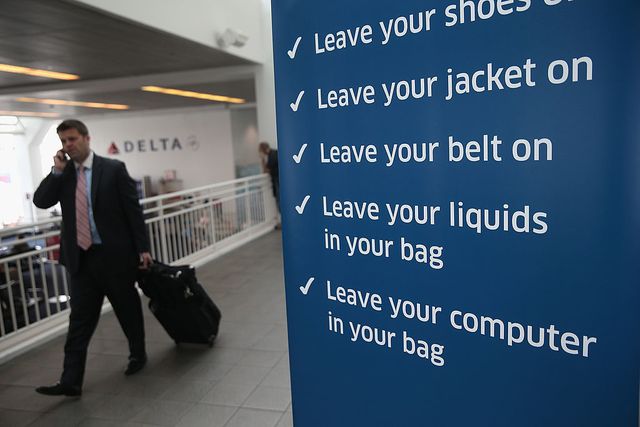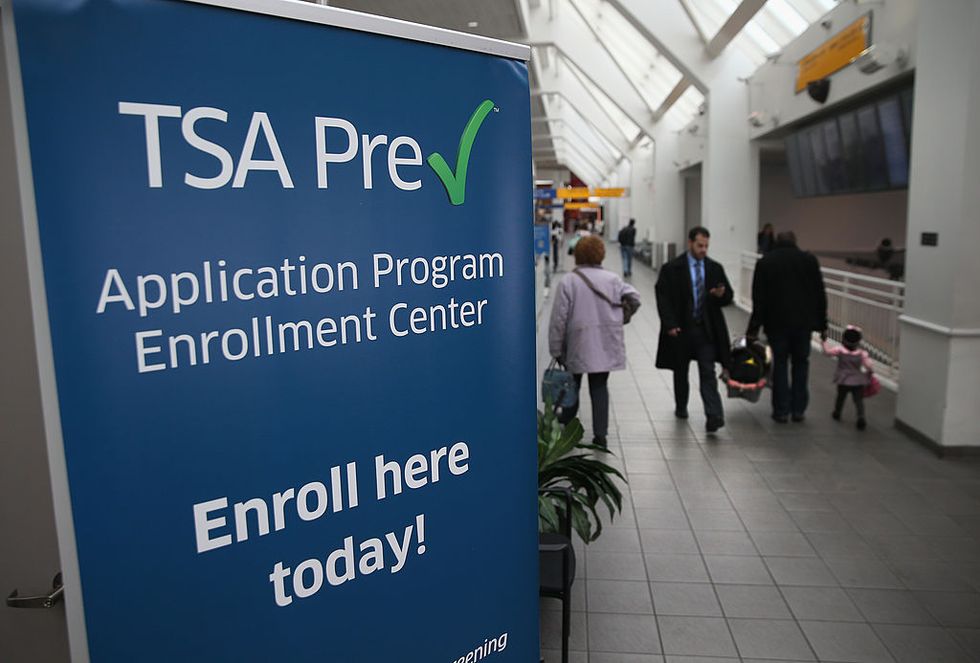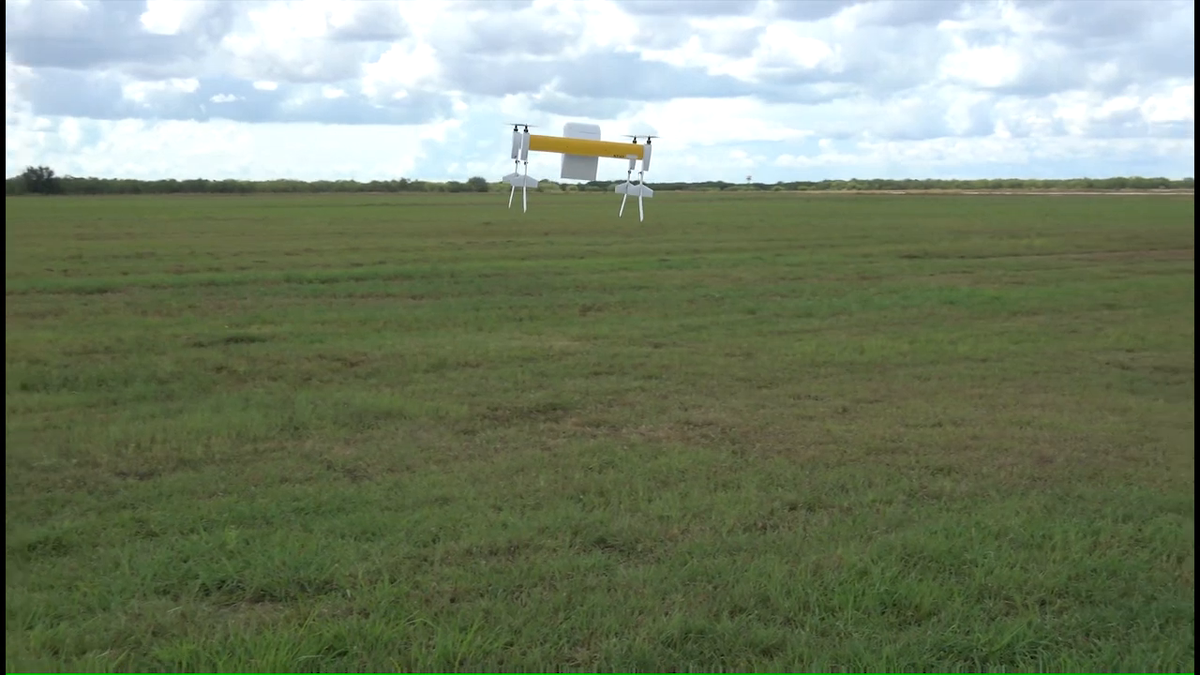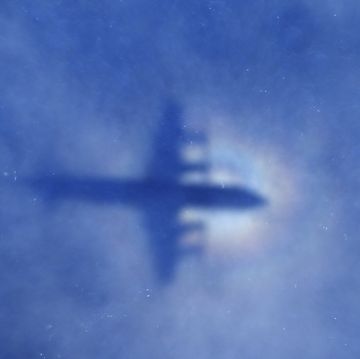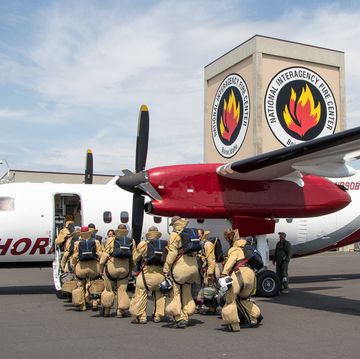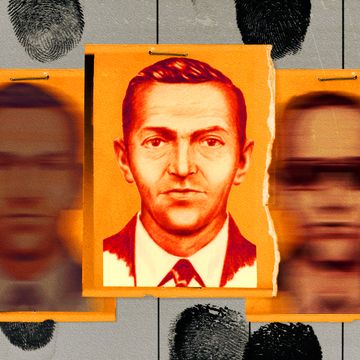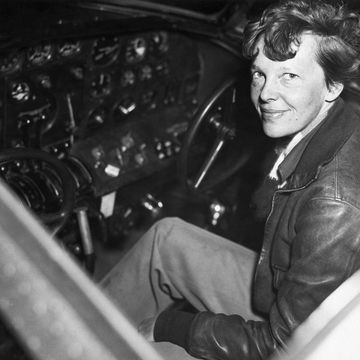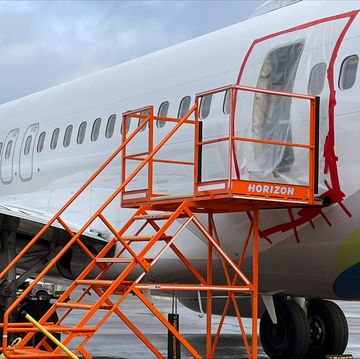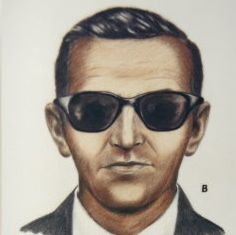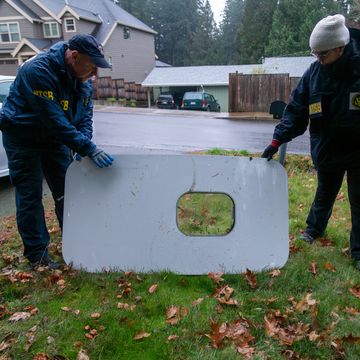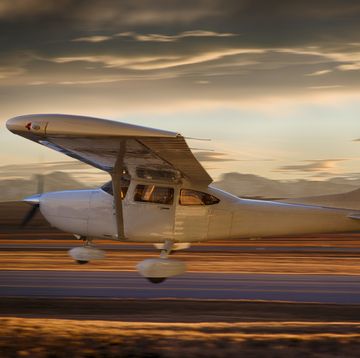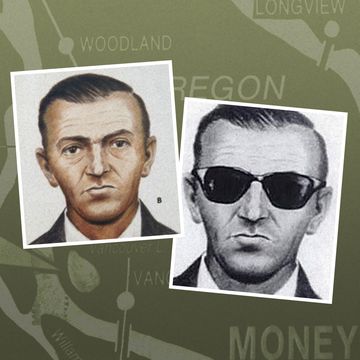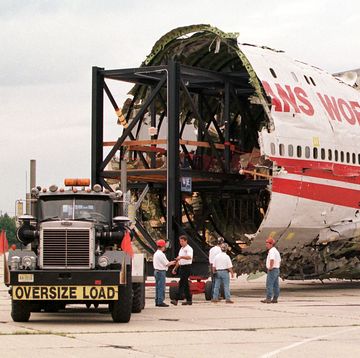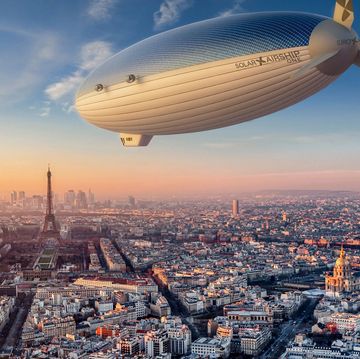No, you're not just imagining things. The security line at the airport is getting worse. Last weekend in Chicago, lines at the TSA checkpoint stretched back two to three hours, causing hundreds of passengers who showed up in the recommended amount of time to miss their flights. Things are going to get even worse this summer. The TSA has been laying some of the blame on the flying public, putting on demos to show how illegal items slow down the line. But Congress and the TSA itself deserve their share of the blame for this mess, too.
If you have to fly, then there's no escape from the madness—except, maybe, getting yourself into that TSA Pre-Check line. It may not be lightning fast, especially as more people sign up for the program seeking refuge from the nightmare of the normal security line. But it helps. Trust me: This year I finally ponied up for the program. I should have done it years ago.
If you've ever seen the people in pantsuits burning through the Pre-Check line and figured it's just a perk for business travelers, don't. It's not just for the George Clooneys of the world. It's for you. The application process is reasonably painless and the benefits are just as satisfying as your annoying friend has boasted.
No, Really, Get It
Pre-Check has been around since 2011, when the Transportation Security Administration rolled out the expedited screening for people who belonged to the frequent flyer programs of various large airlines. Today, any American citizen can apply for the program. As a result, the number of people enrolled jumped from a million in March 2015 to 2 million in January 2016.
Signing up for TSA Pre-Check costs $85, which sounds like a lot for something you don't need. It lasts for five years, though. So if you take just one round-trip flight per year for the next five years, you're paying a little more than $8 bucks per flight to bypass the misery of the ordinary security line. Compared to the hundreds of dollars you're paying for the cramped seat, it suddenly doesn't look like so much to spend on your sanity. Back massages don't last half a decade.
Let me make a further recommendation: Global Entry is a U.S. Customs and Border Patrol program that puts you in the fast lane at the customs line when you come back into the country, whether that's walking through the airport Customs maze or driving across the Mexican or Canadian border. It costs just $100 and includes TSA Pre-Check as part of the package. If you're going to pay $85 and endure a background check to get TSA Pre-Check anyway, then pay $15 more for the right to speed through the border. Travel abroad anytime between now and 2021 and your future self will thank you.
Getting Global Entry is a surprisingly uncomplicated process. You register for an account here and then begin the application. This part is a little tricky only because they ask for five years of address and employment history, so I hope you wrote those things down if you move a lot and your memory's bad. Make sure your info is correct, pay the feds their money, and that's it for this step. You won't hear anything for a few days, during which time your background is being checked.
If there are no red flags, then they send you a note of approval and a reminder to schedule an interview to finish the application. This could be a pain, depending up on where you live, because the in-person interview might involve waiting several weeks for an open slot (it's harder now that more people are applying) and making an extra trip to the airport, where many of the Global Entry and TSA Pre-Check offices live. Thankfully, the interview is a formality for most. Bring a couple forms of ID, answer a few questions, make polite chat with the interviewer, and you'll be fingerprinted, photographed, and approved before you know it.
Several business days later you'll get a Global Entry ID card in the mail. But you can start enjoying Pre-Check right away. When you're approved, the Customs agent will hand you your known traveler number. The next time you book a flight, put that number in the designated box while you're filling out all that annoying personal info. When you print your boarding pass at the airport, a big "TSA PRE CHECK" will be plastered on it, and you're on your way to the fast lane.
The Case Against Pre-Check
It's almost too easy, right? On a trip this January before my Pre-Check paperwork was done, I was schlepping through screening in dirty socks, beltless pants sagging as I stood arms-up in that jumping jacks posture for the millimeter wave machine. When I flew to California in February, this time with a known traveler number, I breezed through the metal detector behind what I am pretty sure was Spike Lee's entourage. Sheepishly I asked the TSA agent at the desk to remind me whether I needed to take out my MacBook. "It's my first time." (You don't have to—Pre-Check lets you leave laptops in your bag and keep on your light jacket, among other perks.)
When Pre-Check reached 2 million members in January, an expert today told USA Today that word of mouth is the best advertising the program gets. It's not hard to see why, given how much time I just spent gushing about it. Blowing through the security line—and seeing everybody else trudge through the sad gymnastics of the non-express—feels like such a free lunch that you can't help but bring it up to friends and colleagues.
I don't think the Department of Homeland Security imagined things shaking out this way, but it's not impossible to imagine a cruel kind of dystopian logic behind it: Americans get so sick of being treated like criminals before every flight that they're willing to sign over just about anything to avoid such a fate—as long as they don't have to think too much about what they're signing over. That's the dark cloud around that hovers near the sunny sky of Pre-Check, the one that has some people worried.
Even as seven figures of Americans have signed up for the program, we don't know exactly how TSA looks into a person's background to determine that they're a low-risk flyer—just that the FBI checks a person's record via their fingerprints, and the feds search unnamed law enforcement and intelligence databases. This is a problem for civil liberties groups like the ACLU. Are we signing over our privacy just to keep our shoes on? If we know so little about the process, how do we know people aren't being unfairly turned away from Pre-Check because of profiling? Meanwhile, the black box of TSA pre-screening is a problem for people on the other side of the political spectrum, who worry that we don't know whether the Pre-Check screening process is really secure enough.
As the gregarious Customs agent at JFK scanned my fingerprints into the computer, the last step of the process, there rang in my head a momentarily bell that said, "Oh. They have those on file now." Everything good at the airport is too good to be true. Am I willing to give up my fingerprints to get back a few minutes of dignity? Apparently, I am.

Andrew's from Nebraska. His work has also appeared in Discover, The Awl, Scientific American, Mental Floss, Playboy, and elsewhere. He lives in Brooklyn with two cats and a snake.
